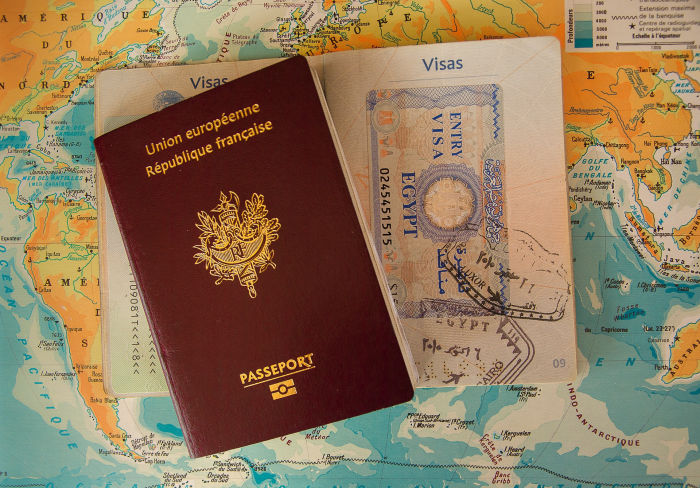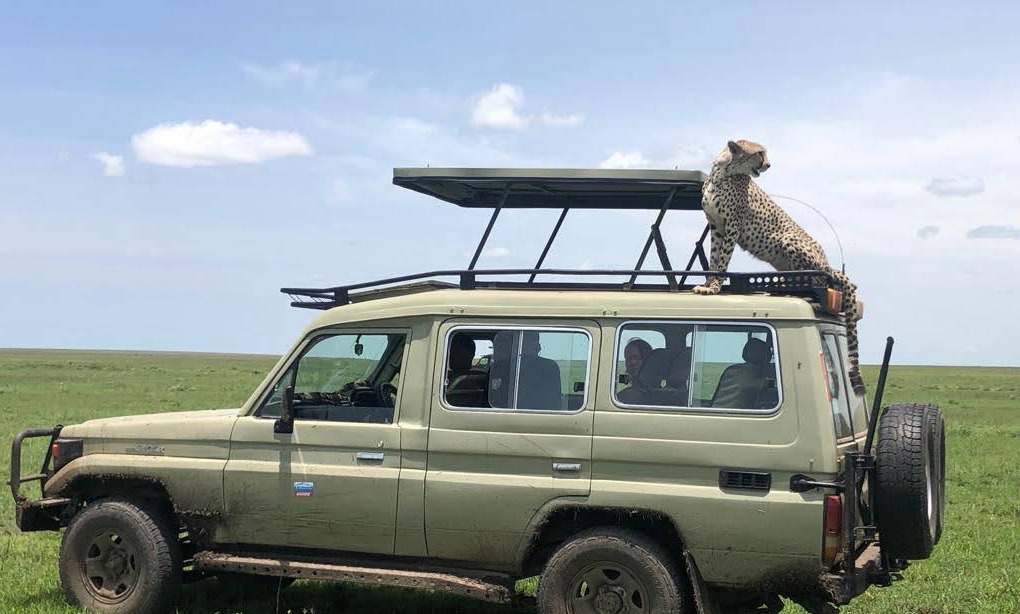safety Focused
While on safari, your safety is our #1 priority
Highly Acclaimed
We’re known for quality service & friendliness
Expert Guides
Professional & experienced Guides
Responsible Tourism
Social & environmental responsibility
Your Gateway
to Unforgettable
adventures
Discover the world best Wildlife safaris in Tanzania with Hello Africa Safaris, your trusted guide to Tanzania’s most iconic wildlife experiences. Whether you’re drawn to the majestic Serengeti, the towering peaks of Mount Kilimanjaro, or the serene beaches of Zanzibar, we offer tailor-made safari packages that suit every traveler’s dream. With expert guides, a commitment to responsible tourism, and personalized itineraries, we ensure that your journey is both safe and unforgettable. Join us for the adventure of a lifetime!
Explore Wildlife safaris in Tanzania
Tanzania is a land of awe-inspiring beauty and diverse landscapes, offering something for every traveler. From the vast Serengeti plains, where the Great Migration unfolds, to the breathtaking Ngorongoro Crater, home to dense wildlife populations, Tanzania captivates with its natural wonders. For adventurers, Mount Kilimanjaro, Africa’s highest peak, awaits. And for those seeking relaxation, the crystal-clear waters of Zanzibar provide the perfect coastal retreat. Each destination is a gateway to unforgettable experiences, combining adventure, culture, and serenity.
Zanzibar
Zanzibar
Kilimanjaro
Mt. Kilimanjaro
Serengeti
Serengeti
Ngorongoro
Ngorongoro
Explore the Best of Tanzania
Tanzania is a land of awe-inspiring beauty and diverse landscapes, offering something for every traveler. From the vast Serengeti plains, where the Great Migration unfolds, to the breathtaking Ngorongoro Crater, home to dense wildlife populations, Tanzania captivates with its natural wonders. For adventurers, Mount Kilimanjaro, Africa’s highest peak, awaits. And for those seeking relaxation, the crystal-clear waters of Zanzibar provide the perfect coastal retreat. Each destination is a gateway to unforgettable experiences, combining adventure, culture, and serenity.
Wildlife Camping Safaris
Wildlife Lodge Safaris
Why Choose Hello Africa Safaris?
We are cost innovators, offering competitive pricing without compromising quality. Our Expert Support team provides personalized guidance throughout your journey. Every trip is crafted with Custom Itineraries, tailored to your preferences, whether you’re seeking wildlife adventures or cultural experiences. With Unlimited Destinations, we take you beyond the ordinary, offering access to Tanzania’s hidden gems, from iconic national parks to off-the-beaten-path locales..
Cost innovators
We guarantee good value for money
Expert Support
Access to world-class safari experts 24/7
Custom Itineraries
To suit your time, needs, taste & budget
Unlimited Destinations
Safaris to any attraction in Tanzania
Travel Tips for Your Safari Adventure
Prepare for your African safari with expert advice from Hello Africa Safaris. Our travel tips cover everything from packing essentials to navigating local customs and ensuring your trip runs smoothly. Whether it’s your first safari or you’re a seasoned explorer, we provide practical tips to help you maximize comfort, safety, and enjoyment on your journey. Explore our travel tips and embark on your adventure fully prepared!
Travel insurance recommendations

Your travel insurance should at minimum protect you against trip cancellation and trip interruption; this can be useful should you need to cancel your trip due to circumstances such as sickness, emergencies or training injury.
Your Insurance should also cover high altitude trekking (do not confuse this with mountaineering or mountain climbing which is not covered by most insurance providers) and medical evacuation and repatriation costs. If you reside in the USA, we recommend Travel Guard and If you reside outside the USA we recommend World Nomads.
Where can I get a Tanzanian visa?

Foreigners seeking to enter the United Republic of Tanzania should be in possession of a valid passport, at least six months prior to expiration. The passport is to be presented to the Immigration Control Officer at any entry point: border station, airport, harbor. The passport must be presented along with one of the following:
– A valid visa
– Resident permit
– A pass
A visitor must also present an onward or return ticket together with proof that the visitor has sufficient funds to support himself or herself while in Tanzania.
All foreigners from non-Commonwealth countries are required to have a valid visa unless their countries have agreements with Tanzania under which the visa requirement is waived.
Exemptions: Citizens of Commonwealth countries are not required to obtain visas unless they are citizens of the United Kingdom, Canada, Nigeria, or India.
The visa is permission granted to a foreigner who intends to travel to Tanzania on business, for a holiday, to study or conduct research, or for other approved activities. When entering Tanzania, the visitor with a visa may then obtain from the immigration control officer, a pass or any other authority to enter the country.
Visas are issued by the following:
The office of the Director of Immigration Services, Dar es Salaam, and the office of the Principal Immigration Officer, Zanzibar.
Tanzanian representatives abroad: Visas can be obtained at Tanzanian Embassies and High Commissions, such as the Tanzanian Embassy of the United States.
Entry points to the United Republic of Tanzania: principally Namanga, Tunduma, Sirari, Horohoro, Kigoma port, Dar es Salaam International Airport, Kilimanjaro International Airport, Zanzibar Harbour and Zanzibar Airport.
Any other gazette entry point.
Tanzania Entry Requirements

Foreigners seeking to enter the United Republic of Tanzania should be in possession of a valid passport, at least six months prior to expiration. The passport is to be presented to the Immigration Control Officer at any entry point: border station, airport, harbor. The passport must be presented along with one of the following:
– A valid visa
– Resident permit
– A pass
A visitor must also present an onward or return ticket together with proof that the visitor has sufficient funds to support himself or herself while in Tanzania.
All foreigners from non-Commonwealth countries are required to have a valid visa unless their countries have agreements with Tanzania under which the visa requirement is waived.
Exemptions: Citizens of Commonwealth countries are not required to obtain visas unless they are citizens of the United Kingdom, Canada, Nigeria, or India.
The visa is permission granted to a foreigner who intends to travel to Tanzania on business, for a holiday, to study or conduct research, or for other approved activities. When entering Tanzania, the visitor with a visa may then obtain from the immigration control officer, a pass or any other authority to enter the country.
Visas are issued by the following:
The office of the Director of Immigration Services, Dar es Salaam, and the office of the Principal Immigration Officer, Zanzibar.
Tanzanian representatives abroad: Visas can be obtained at Tanzanian Embassies and High Commissions, such as the Tanzanian Embassy of the United States.
Entry points to the United Republic of Tanzania: principally Namanga, Tunduma, Sirari, Horohoro, Kigoma port, Dar es Salaam International Airport, Kilimanjaro International Airport, Zanzibar Harbour and Zanzibar Airport.
Any other gazette entry point.
Health precautions while on safari

To stay healthy and safe while on Safari, please observe the following:
Make sure your food and drinking water are safe. Food and waterborne diseases are the primary cause of illness in travelers. Travelers’ diarrhea can be caused by viruses, bacteria, or parasites, which are found throughout East Africa and can contaminate food or water. Infections may cause diarrhea and vomiting (E. coli, Salmonella, cholera, and parasites), fever (typhoid fever and toxoplasmosis), or liver damage (hepatitis).
To stay healthy, do…
– Wash your hands often with soap and water or, if hands are not visibly soiled, use a waterless, alcohol-based hand rub to remove potentially infectious materials from your skin and help prevent disease transmission.
– In developing countries, drink only bottled or boiled water, or carbonated (bubbly) drinks in cans or bottles. Avoid tap water, fountain drinks, and ice cubes. If this is not possible, learn how to make water safer to drink.
– Take your malaria prevention medication before, during, and after travel, as directed. (See your health care provider for a prescription.)
– To prevent fungal and parasitic infections, keep feet clean and dry, and do not go barefoot, even on beaches.
– Always use latex condoms to reduce the risk of HIV and other sexually transmitted diseases.
– Protect yourself from mosquito insect bites:
– Wear long-sleeved shirts, long pants, and hats when outdoors.
– Use insect repellents that contain DEET (N, N-diethylmethyltoluamide).
– If no screening or air conditioning is available: use a pyrethroid-containing spray in living and sleeping areas during evening and night-time hours; sleep under bed nets, preferably insecticide-treated ones.
Do not…
– Do not eat food purchased from street vendors or food that is not well cooked to reduce the risk of infection (i.e., hepatitis A and typhoid fever).
– Do not drink beverages with ice.
– Avoid dairy products, unless you know they have been pasteurized.
– Do not swim in fresh water to avoid exposure to certain water-borne diseases such as schistosomiasis.
– Do not handle animals, especially monkeys, dogs, and cats, to avoid bites and serious diseases (including rabies and plague). Consider pre-exposure rabies vaccination if you might have extensive unprotected outdoor exposure in rural areas.
– Do not share needles for tattoos, body piercing or injections to prevent infections such as HIV and hepatitis B.
– Avoid poultry farms, bird markets, and other places where live poultry is raised or kept.
